|
Dusty Dog Reviews The whole project is hip, anti-academic, the poetry of reluctant grown-ups, picking noses in church. An enjoyable romp! Though also serious. |
|
Nick DiSpoldo, Small Press Review (on Children, Churches and Daddies, April 1997) Children, Churches and Daddies is eclectic, alive and is as contemporary as tomorrow’s news. |



|
Kenneth DiMaggio (on cc&d, April 2011) CC&D continues to have an edge with intelligence. It seems like a lot of poetry and small press publications are getting more conservative or just playing it too academically safe. Once in awhile I come across a self-advertized journal on the edge, but the problem is that some of the work just tries to shock you for the hell of it, and only ends up embarrassing you the reader. CC&D has a nice balance; [the] publication takes risks, but can thankfully take them without the juvenile attempt to shock. |
|
from Mike Brennan 12/07/11 I think you are one of the leaders in the indie presses right now and congrats on your dark greatness. |
Volume 246, November / December 2013
Internet ISSN 1555-1555, print ISSN 1068-5154

cover art by John Yotko
see what’s in this issue...
Note that in the print edition of cc&d magazine, all artwork within the pages of the book appear in black and white.
|
Order this issue from our printer as a paperback book (5.5" x 8.5") perfect-bound w/ b&w pages |

|
poetry the passionate stuff |
Why Picasso seldom traveledFritz Hanilton
Why Picasso seldom traveled, except
died at age 91 - all images he
women were beautiful on canvas when
he always had the next one ready before
at coffeehouses with Bracht to discuss painting as
love & beauty is all U need to know, for
!
|
child beatenFritz Hamilton
child beaten/ having to
screaming/ father
screaming bereft of reality running
drug addict to change reality in
horror/ twisted suffering/ children
parents/ vulture spirits hovering
weeping wilting as !
|
Dark Ages
CEE |
Waiting For the Cop to LeaveCEE
Oh, yay
You know why Joe Good Citizen, gets the knock,
|
Poem #1 from
Kenneth DiMaggio |
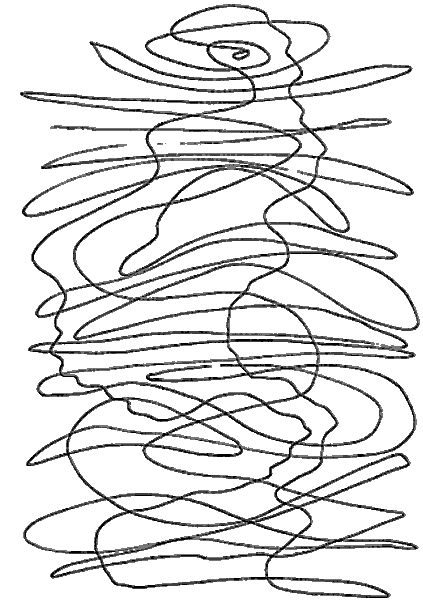
Lady, drawing by the HA!Man of South Africa
The Modigliani DaughtersCaroline N. Simpson
Modigliani painted my portrait the century before
Daydreaming, she stared at my effigy:
in between studying to become the biologist she did,
but never dreaming
|
|
Janet Kuypers reads poetry from cc&d magazine Volume 246, the November / December 2013 issue “The Modigliani Daughter” by Caroline N. Simpson, “Lonely” by Jeff Stinson, “The Doctors Were Wrong” by Jeff Stinson, “Apocalyptic Haiku” by Neal Wilgus, “A Suggestion” by George Gott, “Lost” by Mel Waldman, “Buried in the Snow” by Mel Waldman, “The Secret Jar” by Roger Cowin, “Morality tale” by Kelley Jean White MD, and “In the End” by Holly Day |

See YouTube video of Janet Kuypers reading poetry Volume 246, the November / December 2013 issue of cc&d magazine (including the poems “The Modigliani Daughter” by Caroline N. Simpson, “Lonely” by Jeff Stinson, “The Doctors Were Wrong” by Jeff Stinson, “Apocalyptic Haiku” by Neal Wilgus, “A Suggestion” by George Gott, “Lost” by Mel Waldman, “Buried in the Snow” by Mel Waldman, “The Secret Jar” by Roger Cowin, “Morality tale” by Kelley Jean White MD, and “In the End” by Holly Day), live 12/4/13 at the open mic the Café Gallery at the Gallery Cabaret in Chicago (C) |
About Caroline N. SimpsonCaroline N. Simpson is an international teacher, currently residing in Turkey. She has taught English literature at international high schools in Ankara, Turkey, Barcelona, Spain, and currently Izmir, Turkey. Her poetry has been published in Barcelona-based literary magazine, Barcelona Ink, Michigan-based journal, Third Wednesday, and e-zine, Ascent Aspirations.
|
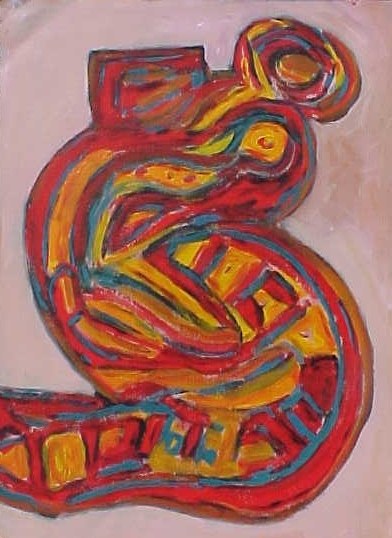
Mex, art by David Michael Jackson
LonelyJeff Stinson
He reminds me of stained restroom floors
I go to his house for our first date
He playfully tells me to shut up
He kisses me with violent lips
I notice his ankle bracelet
|
|
Janet Kuypers reads poetry from cc&d magazine Volume 246, the November / December 2013 issue “The Modigliani Daughter” by Caroline N. Simpson, “Lonely” by Jeff Stinson, “The Doctors Were Wrong” by Jeff Stinson, “Apocalyptic Haiku” by Neal Wilgus, “A Suggestion” by George Gott, “Lost” by Mel Waldman, “Buried in the Snow” by Mel Waldman, “The Secret Jar” by Roger Cowin, “Morality tale” by Kelley Jean White MD, and “In the End” by Holly Day |

See YouTube video of Janet Kuypers reading poetry Volume 246, the November / December 2013 issue of cc&d magazine (including the poems “The Modigliani Daughter” by Caroline N. Simpson, “Lonely” by Jeff Stinson, “The Doctors Were Wrong” by Jeff Stinson, “Apocalyptic Haiku” by Neal Wilgus, “A Suggestion” by George Gott, “Lost” by Mel Waldman, “Buried in the Snow” by Mel Waldman, “The Secret Jar” by Roger Cowin, “Morality tale” by Kelley Jean White MD, and “In the End” by Holly Day), live 12/4/13 at the open mic the Café Gallery at the Gallery Cabaret in Chicago (C) |
soldier of the king beeChristopher Mulrooney
or some sort of alternative botheration
|
Christopher Mulrooney BioChristopher Mulrooney has written poems in Tulane Review, Pacific Review, Orbis, and Weyfarers.
|
 |
The Doctors Were WrongJeff Stinson
I put the open end of the gun
I weep blood as it goes off
|
|
Janet Kuypers reads poetry from cc&d magazine Volume 246, the November / December 2013 issue “The Modigliani Daughter” by Caroline N. Simpson, “Lonely” by Jeff Stinson, “The Doctors Were Wrong” by Jeff Stinson, “Apocalyptic Haiku” by Neal Wilgus, “A Suggestion” by George Gott, “Lost” by Mel Waldman, “Buried in the Snow” by Mel Waldman, “The Secret Jar” by Roger Cowin, “Morality tale” by Kelley Jean White MD, and “In the End” by Holly Day |

See YouTube video of Janet Kuypers reading poetry Volume 246, the November / December 2013 issue of cc&d magazine (including the poems “The Modigliani Daughter” by Caroline N. Simpson, “Lonely” by Jeff Stinson, “The Doctors Were Wrong” by Jeff Stinson, “Apocalyptic Haiku” by Neal Wilgus, “A Suggestion” by George Gott, “Lost” by Mel Waldman, “Buried in the Snow” by Mel Waldman, “The Secret Jar” by Roger Cowin, “Morality tale” by Kelley Jean White MD, and “In the End” by Holly Day), live 12/4/13 at the open mic the Café Gallery at the Gallery Cabaret in Chicago (C) |

Apocalyptic HaikuNeal Wilgus
procrastination
Reprinted from APOCALYPSE:
|
|
Janet Kuypers reads poetry from cc&d magazine Volume 246, the November / December 2013 issue “The Modigliani Daughter” by Caroline N. Simpson, “Lonely” by Jeff Stinson, “The Doctors Were Wrong” by Jeff Stinson, “Apocalyptic Haiku” by Neal Wilgus, “A Suggestion” by George Gott, “Lost” by Mel Waldman, “Buried in the Snow” by Mel Waldman, “The Secret Jar” by Roger Cowin, “Morality tale” by Kelley Jean White MD, and “In the End” by Holly Day |

See YouTube video of Janet Kuypers reading poetry Volume 246, the November / December 2013 issue of cc&d magazine (including the poems “The Modigliani Daughter” by Caroline N. Simpson, “Lonely” by Jeff Stinson, “The Doctors Were Wrong” by Jeff Stinson, “Apocalyptic Haiku” by Neal Wilgus, “A Suggestion” by George Gott, “Lost” by Mel Waldman, “Buried in the Snow” by Mel Waldman, “The Secret Jar” by Roger Cowin, “Morality tale” by Kelley Jean White MD, and “In the End” by Holly Day), live 12/4/13 at the open mic the Café Gallery at the Gallery Cabaret in Chicago (C) |
Morality taleKelley Jean White MD
The dog and the cat were the best
He often offered her his dish of food
He wagged his tail at her and barked
in the sun, bemused by the ways of dogs.
|

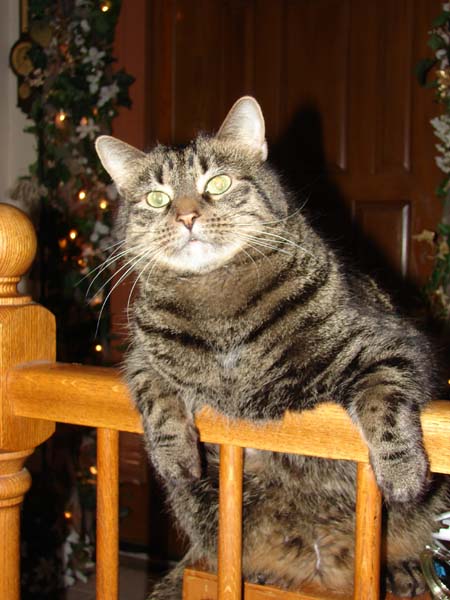
|
Janet Kuypers reads poetry from cc&d magazine Volume 246, the November / December 2013 issue “The Modigliani Daughter” by Caroline N. Simpson, “Lonely” by Jeff Stinson, “The Doctors Were Wrong” by Jeff Stinson, “Apocalyptic Haiku” by Neal Wilgus, “A Suggestion” by George Gott, “Lost” by Mel Waldman, “Buried in the Snow” by Mel Waldman, “The Secret Jar” by Roger Cowin, “Morality tale” by Kelley Jean White MD, and “In the End” by Holly Day |

See YouTube video of Janet Kuypers reading poetry Volume 246, the November / December 2013 issue of cc&d magazine (including the poems “The Modigliani Daughter” by Caroline N. Simpson, “Lonely” by Jeff Stinson, “The Doctors Were Wrong” by Jeff Stinson, “Apocalyptic Haiku” by Neal Wilgus, “A Suggestion” by George Gott, “Lost” by Mel Waldman, “Buried in the Snow” by Mel Waldman, “The Secret Jar” by Roger Cowin, “Morality tale” by Kelley Jean White MD, and “In the End” by Holly Day), live 12/4/13 at the open mic the Café Gallery at the Gallery Cabaret in Chicago (C) |
Reflections on Monet’s WaterliliesAndrew H. Oerke
If thoughts are reflections on life, dabbing down lilies
His glaucoma soaked into the fibers of the
The way champagne inspires the body,
The wand of his brush wove this way, that way, with
|
the Zen of Personal SpaceCopyright R. N. Taber 2013
Looking for a shortcut to nowhere,
Tossing stones in a ring of dark water,
Among poetic shadows in a leafy light,
No escape, only ever-widening circles
Surely, plaintive cries growing weaker
Mind, body, and spirit engaging with time
|

In the EndHolly Day
the descendants of laboratory rats
compared to the oil the dinosaurs left behind
|

|
Janet Kuypers reads poetry from cc&d magazine Volume 246, the November / December 2013 issue “The Modigliani Daughter” by Caroline N. Simpson, “Lonely” by Jeff Stinson, “The Doctors Were Wrong” by Jeff Stinson, “Apocalyptic Haiku” by Neal Wilgus, “A Suggestion” by George Gott, “Lost” by Mel Waldman, “Buried in the Snow” by Mel Waldman, “The Secret Jar” by Roger Cowin, “Morality tale” by Kelley Jean White MD, and “In the End” by Holly Day |

See YouTube video of Janet Kuypers reading poetry Volume 246, the November / December 2013 issue of cc&d magazine (including the poems “The Modigliani Daughter” by Caroline N. Simpson, “Lonely” by Jeff Stinson, “The Doctors Were Wrong” by Jeff Stinson, “Apocalyptic Haiku” by Neal Wilgus, “A Suggestion” by George Gott, “Lost” by Mel Waldman, “Buried in the Snow” by Mel Waldman, “The Secret Jar” by Roger Cowin, “Morality tale” by Kelley Jean White MD, and “In the End” by Holly Day), live 12/4/13 at the open mic the Café Gallery at the Gallery Cabaret in Chicago (C) |
A SuggestionGeorge Gott
We were living As lovers.
Also we ate spaghetti
And drank
That is all
As I suggest
|
|
Janet Kuypers reads poetry from cc&d magazine Volume 246, the November / December 2013 issue “The Modigliani Daughter” by Caroline N. Simpson, “Lonely” by Jeff Stinson, “The Doctors Were Wrong” by Jeff Stinson, “Apocalyptic Haiku” by Neal Wilgus, “A Suggestion” by George Gott, “Lost” by Mel Waldman, “Buried in the Snow” by Mel Waldman, “The Secret Jar” by Roger Cowin, “Morality tale” by Kelley Jean White MD, and “In the End” by Holly Day |

See YouTube video of Janet Kuypers reading poetry Volume 246, the November / December 2013 issue of cc&d magazine (including the poems “The Modigliani Daughter” by Caroline N. Simpson, “Lonely” by Jeff Stinson, “The Doctors Were Wrong” by Jeff Stinson, “Apocalyptic Haiku” by Neal Wilgus, “A Suggestion” by George Gott, “Lost” by Mel Waldman, “Buried in the Snow” by Mel Waldman, “The Secret Jar” by Roger Cowin, “Morality tale” by Kelley Jean White MD, and “In the End” by Holly Day), live 12/4/13 at the open mic the Café Gallery at the Gallery Cabaret in Chicago (C) |
TogetherGeorge Gott
A moment of silence
|

White Sands 1v, photography by Brian Hosey

rippled sand, photography by Brian Hosey
Diesel Punk PathwayDavid S. Pointer
The Comanche code talker
|
| Janet Kuypers reads David S. Pointer’s poem appearing in the 2014 literary date book titled Don’t Forget It Diesel Punk Pathway |

See YouTube video of Janet Kuypers reading writing appearing in the 2014 literary date book titled Don’t Forget It live 12/3/14 at Chicago’s the Café Gallery |
Hell Hound DrinkeryDavid S. Pointer
A big pack of red cross war dogs
memory chasing after an old beer
attachments carrying extra kegs
machine gunners must have ridden
Americans and late comers follow
|
Oh, JesusVol Lindsey
Her name is Tracy K Smith
|
Our FallenCarlos Rojas Jr. (Lcpl Rojas)Dedicated to Cpl. Kerns and Cpl. Reyes
Walking the streets of Africa,
|
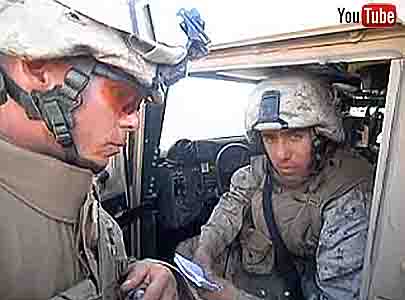
![]()
LostMel Waldman
Lost in the vast snow;
Buried in the SnowMel Waldman
Buried in the snow,
After DeathMel Waldman
After death dissolves,
|
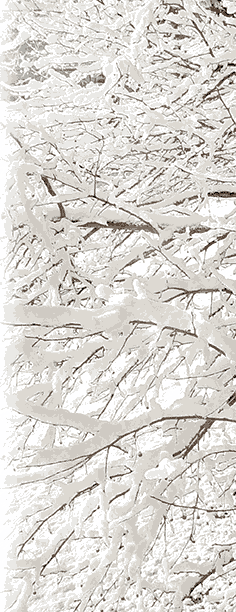
|
|
Janet Kuypers reads poetry from cc&d magazine Volume 246, the November / December 2013 issue “The Modigliani Daughter” by Caroline N. Simpson, “Lonely” by Jeff Stinson, “The Doctors Were Wrong” by Jeff Stinson, “Apocalyptic Haiku” by Neal Wilgus, “A Suggestion” by George Gott, “Lost” by Mel Waldman, “Buried in the Snow” by Mel Waldman, “The Secret Jar” by Roger Cowin, “Morality tale” by Kelley Jean White MD, and “In the End” by Holly Day |

See YouTube video of Janet Kuypers reading poetry Volume 246, the November / December 2013 issue of cc&d magazine (including the poems “The Modigliani Daughter” by Caroline N. Simpson, “Lonely” by Jeff Stinson, “The Doctors Were Wrong” by Jeff Stinson, “Apocalyptic Haiku” by Neal Wilgus, “A Suggestion” by George Gott, “Lost” by Mel Waldman, “Buried in the Snow” by Mel Waldman, “The Secret Jar” by Roger Cowin, “Morality tale” by Kelley Jean White MD, and “In the End” by Holly Day), live 12/4/13 at the open mic the Café Gallery at the Gallery Cabaret in Chicago (C) |
| Janet Kuypers reads Mel Waldman’s poem appearing in the 2014 literary date book titled Don’t Forget It After Death |

See YouTube video of Janet Kuypers reading writing appearing in the 2014 literary date book titled Don’t Forget It live 12/3/14 at Chicago’s the Café Gallery |
BIOMel Waldman, Ph. D.Dr. Mel Waldman is a licensed New York State psychologist and a candidate in Psychoanalysis at the Center for Modern Psychoanalytic Studies (CMPS). He is also a poet, writer, artist, and singer/songwriter. After 9/11, he wrote 4 songs, including “Our Song,” which addresses the tragedy. His stories have appeared in numerous literary reviews and commercial magazines including HAPPY, SWEET ANNIE PRESS, CHILDREN, CHURCHES AND DADDIES and DOWN IN THE DIRT (SCARS PUBLICATIONS), NEW THOUGHT JOURNAL, THE BROOKLYN LITERARY REVIEW, HARDBOILED, HARDBOILED DETECTIVE, DETECTIVE STORY MAGAZINE, ESPIONAGE, and THE SAINT. He is a past winner of the literary GRADIVA AWARD in Psychoanalysis and was nominated for a PUSHCART PRIZE in literature. Periodically, he has given poetry and prose readings and has appeared on national T.V. and cable T.V. He is a member of Mystery Writers of America, Private Eye Writers of America, American Mensa, Ltd., and the American Psychological Association. He is currently working on a mystery novel inspired by Freud’s case studies. Who Killed the Heartbreak Kid?, a mystery novel, was published by iUniverse in February 2006. It can be purchased at www.iuniverse.com/bookstore/, www.bn.com, at /www.amazon.com, and other online bookstores or through local bookstores. Recently, some of his poems have appeared online in THE JERUSALEM POST. Dark Soul of the Millennium, a collection of plays and poetry, was published by World Audience, Inc. in January 2007. It can be purchased at www.worldaudience.org, www.bn.com, at /www.amazon.com, and other online bookstores or through local bookstores. A 7-volume short story collection was published by World Audience, Inc. in June 2007 and can also be purchased online at the above-mentioned sites. |

|
Chicago Pulse “sweet poems, Chicago ” |
|
Preface: In 2013, in the Maldives, a 15 year-old girl was raped, subsequently convicted of fornication under Sharia law, and sentenced to 100 lashes to be delivered on her 18th birthday. There is little likelihood she will survive 100 lashes.
Home Recipe for Sharia JusticeTom Curry
In a small atoll
|
Urban OmWes Heine
The motor in my fridge starts again,
Life is happening outside, the neon oil pane,
Then the sun returns, as brass smiles ooze molten honey,
A veil hints the blushing Goddess of ever pulsing love.
|
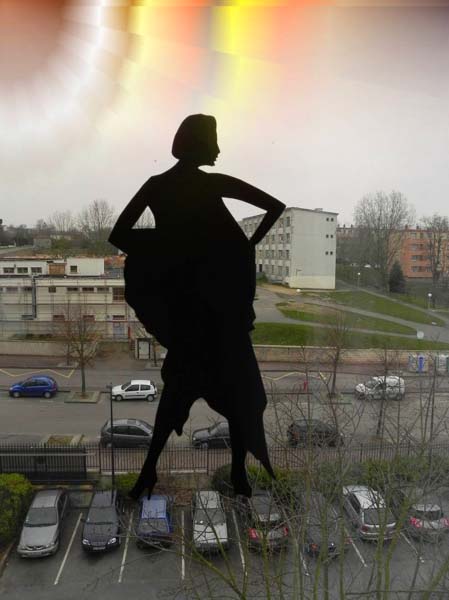
ART 67F UZEYIR CAYCI 8HDFK, art by Üzeyir Lokman ÇAYCI
Bad BuddhistEmily Calvo
I am a bad Buddhist
I am a bad Buddhist—
As I’d be a bad Muslim
I am a bad Buddhist
Sensei’s wisdom mingles with poets and artists
I follow peacemakers and curse warriors
|
UntitledEmilio Maldonado
Sometimes, feels like the last 15 years were spent by someone else
I opened the wrong door, turned on the wrong light,
Goddamn organ grinder fucking monkey!
Wearing blinders that were meant for cowards, Why does night have to be so short?
Love! Love! Love!
Platform shoes but never looking cool, Alleyways, shining in Chinatown with last night’s piss and this morning’s rain. Nostalgia, for someone else’s stories, smells that went into different noses,
I’m running outta steam faster than a drum solo...
I’m staring across a room and feel my blood rise,
I miss being whispered to.
Je suis desolee.
My god, I forgot your freckles!
|
The Secret JarRoger Cowin
These things are yours,
What you inherit,
You place your inheritance
|
|
Janet Kuypers reads poetry from cc&d magazine Volume 246, the November / December 2013 issue “The Modigliani Daughter” by Caroline N. Simpson, “Lonely” by Jeff Stinson, “The Doctors Were Wrong” by Jeff Stinson, “Apocalyptic Haiku” by Neal Wilgus, “A Suggestion” by George Gott, “Lost” by Mel Waldman, “Buried in the Snow” by Mel Waldman, “The Secret Jar” by Roger Cowin, “Morality tale” by Kelley Jean White MD, and “In the End” by Holly Day |

See YouTube video of Janet Kuypers reading poetry Volume 246, the November / December 2013 issue of cc&d magazine (including the poems “The Modigliani Daughter” by Caroline N. Simpson, “Lonely” by Jeff Stinson, “The Doctors Were Wrong” by Jeff Stinson, “Apocalyptic Haiku” by Neal Wilgus, “A Suggestion” by George Gott, “Lost” by Mel Waldman, “Buried in the Snow” by Mel Waldman, “The Secret Jar” by Roger Cowin, “Morality tale” by Kelley Jean White MD, and “In the End” by Holly Day), live 12/4/13 at the open mic the Café Gallery at the Gallery Cabaret in Chicago (C) |

Rusted Limit, photography by Peter Laberge
Dying to Live
David (Buddha309) Hargarten |
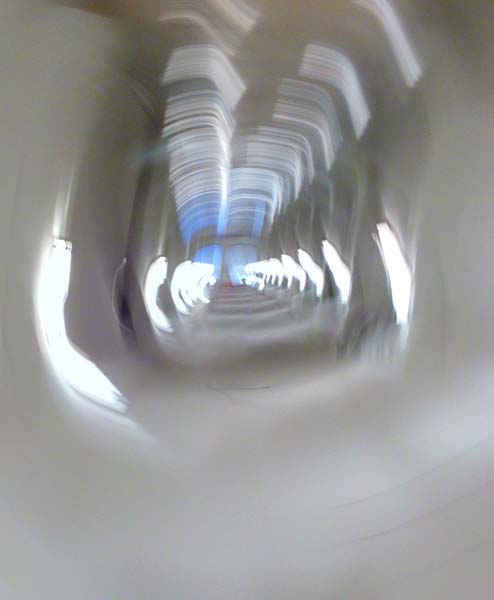
The Last Mile, art by Rex Bromfield
Letter to a StrangerJerry Pendergast
Last night
I grabbed my pistol, sprung to my feet
I laid down the pistol
I shifted my eyes back to the wall
I turned off the projector
I tried to call you
But it doesn’t really matter
I know I may never drive you
|
| Jerry Pendergast reads his poem a Letter to a Stranger from cc&d magazine v243 |

See YouTube video of Jerry Pendergast reading his poem in cc&d magazine live 6/12/13 in Chicago at her the Café Gallery poetry open mic (S) |
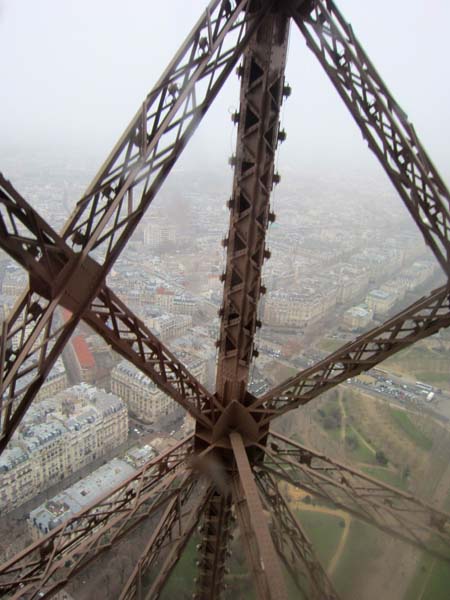
photography (0539) by Eric Bonholtzer
Black man in ParisErren Kelly
Riding the r.e.r
|

|
| Erren Kelly reads his poem Black Man in Paris (scheduled for publication in cc&d magazine) |

See YouTube video of Erren Kelly reading his poem Black Man in Paris (scheduled for publication in cc&d magazine) live 5/29/13 in Chicago at her the Café Gallery poetry open mic |
Oklahoma water-surfingJanet Kuypers5/29/13, twitter-length poem 
Watched Oklahoma tornado news today,
One “Danger: Wet Floor” sign
|

See YouTube video of Kuypers reading the poem Oklahoma water-surfing live 5/29/13 at the end of the evening like conversation at the Café Gallery in Chicago (Sony) |

See YouTube video of Kuypers reading the poem Oklahoma water-surfing live 5/29/13 at the end of the evening like conversation at the Café Gallery in Chicago (Canon) |
Foreign FarmerJanet Kuyperstwitter-length poem 4/13/13  “’Til the cows come home”?
but I don’t own any cows
But the land I live on
|
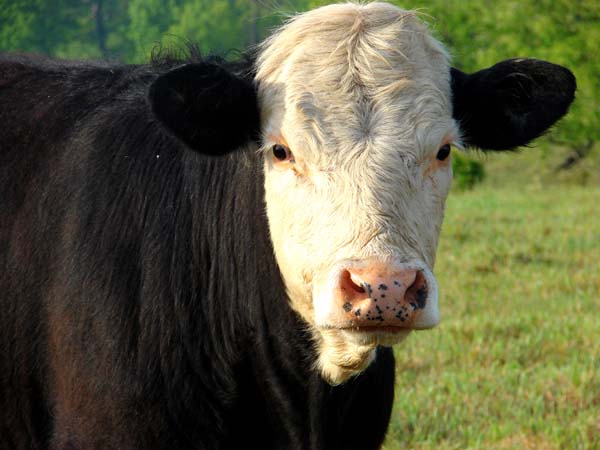

See YouTube video of Janet Kuypers reading her twitter-length poem Foreign Farmer 8/19/13 at Waiting4the Bus in Chicago (Canon) |

See YouTube video of the Janet Kuypers reading Enough’s Enough, My Kind of Town, Eyes are Blurred to the Battlefield, and Foreign Farmer live in Chicago at Waiting4the Bus 8/19/13 (Canon, Film Age - Older) |

See YouTube video of the Janet Kuypers reading poems Enough’s Enough, My Kind of Town, Eyes are Blurred to the Battlefield, and Foreign Farmer live in Chicago at Waiting4the Bus 8/19/13 (Samsung) |

See YouTube video of the Janet Kuypers reading poems Enough’s Enough, My Kind of Town, Eyes are Blurred to the Battlefield, and Foreign Farmer live in Chicago at Waiting4the Bus 8/19/13 (Canon) |
Looking for a Worthy Adversary
Janet Kuypers |

See YouTube video of Kuypers reading this poem 3/13/13 at the Café Gallery in Chicago (from the Canon) |

See YouTube video of Kuypers reading this poem 3/13/13 at the Café Gallery in Chicago (Watercolor, Canon) |

See YouTube video of Kuypers reading this poem 3/13/13 at the Café Gallery in Chicago (Threshold, Canon) |

See YouTube video of Kuypers reading this poem 3/13/13 at the Café Gallery in Chicago (from the Sony) |

See YouTube video of Kuypers reading this poem 3/13/13 at the Café Gallery in Chicago (Film Age - older, Sony) |

See YouTube video of Kuypers reading this poem 3/13/13 at the Café Gallery in Chicago (Posterize, Sony) |

See YouTube video of Kuypers hosting the open mic 3/13/13 at the Café Gallery in Chicago, plus her reading this poem |
Janet Kuypers Bio
Janet Kuypers has a Communications degree in News/Editorial Journalism (starting in computer science engineering studies) from the UIUC. She had the equivalent of a minor in photography and specialized in creative writing. A portrait photographer for years in the early 1990s, she was also an acquaintance rape workshop facilitator, and she started her publishing career as an editor of two literary magazines. Later she was an art director, webmaster and photographer for a few magazines for a publishing company in Chicago, and this Journalism major was even the final featured poetry performer of 15 poets with a 10 minute feature at the 2006 Society of Professional Journalism Expo’s Chicago Poetry Showcase. This certified minister was even the officiant of a wedding in 2006. |

|
Chicago Pulse prose with a Chicago twist |
Why The Bees Are Hiding, Or: How One Girl Ate Chicago -Dana JermanIt began very simply and like most things. It was the spring, and she was hungry. Not for only filling her stomach but for the act of eating. Hell of a long way from apples and chocolate- soon my apartment was going without walls. Pieces of my roommate lodged in her back molars. A humble hunger pang that never quit shaped itself into savory flavors of Wacker Drive skyscrapers, all cake-like, crumbling. Uptown cafes each chilly juice boxes. Then the exquisite sprouting sandwich of the Lincoln Park Conservatory with a side of Lake Shore Drive- pieces of the longest noodle.
She wasn’t going to any mecca, she would have it built in her stomach, she would become it. Her wild eyes and mouth told me about dreams of supper in the white jungle. Where tender sweetened orchid meat was served atop slabs of flash-fried supergiant koi on plates the size of park benches. Rich purplewood and mirrorglass milks flavored with blackbee honey poured out slow and generous jar by singing jar. And the melongrape carafes pouring, stacking in coinshapes the juice melting upward, each becoming its own glass. Each tasting of smoothed mosaics coaxing a glowing heat from the teeth and color from the eyes. The delicate lava-seared butterfly and fresh pearpalm salad matched a dessert of cocoa sugar dusted over crisp ripe alligator hearts; their strawberry-creme taste turning rose the moon and language into pepper and bubbles in the throat. Then the tongue worked deliciously over the edges of the mouth, itself a crag of unchewed coral...
Nobody rode the train anymore on account of all the missing tracks. And she was getting full by then, going missing for weeks at a time.
Here she’s grown a third-eye, her hair now a blue flame. She embraces me and suddenly my heart is an appendage on the end of my hand. Even if I didn’t comprehend, it sounded pretty enough for me to want to spend my whole summer vacation right there, building typewriters out of martian sand so I could write screenplays or poems to build Chicago all over again, elsewhere.
|



|
prose the meat and potatoes stuff |
CentenariumEric Burbridge
“A ticket for jay-walking in a wheelchair? How do you give somebody a ticket for jay-walking in a wheelchair? Well motorized scooter, but it’s still a wheelchair. A hot sunny day, no traffic and nobody on the corner, but you two stop me anyway.” Floyd Lukey pulled out a bandanna and dabbed the sweat that trickled down his wrinkled ebony face. The traffic aides exchanged looks. They towered over the elderly man on their two-wheeled vehicles, one in front, and the other behind.
Archibald Tooney’s expansive frame rotated in his chair and worked up a sweat trying to swat a fly. The elusive intruder buzzed, bobbed and weaved aggravating the tax assessor. The ‘Big A’ his friends called him or the bosses ass by his enemies, heard the elevator doors open and the whine of a scooter’s motor. His nemesis arrived and made the deadline. He put on a political smile when Floyd entered. “Good afternoon, Mr. Lukey.” Tooney extended his hand.
Floyd turned on his computer, grabbed the mouse and his fingers went to work and printed the info on the Segway. He opened his cell phone and hit the speed dial. A groggy voice answered. “Hello.”
Two weeks passed since the sidewalks and driveways were removed. They got the usual run around from the Mayor’s office and Councilman Pasler. Planks replaced sidewalks, a nightmare for scooters. They separated and made them get stuck; some toppled and were injured. Floyd phone rang often and he assured the people soon they would make a move on Tooney.
JP shook his grandpa. His snoring seemed to rattle the rafters. He was exhausted from being on the phone until midnight. “Grandpa, wake up. Crystal’s on the phone.” Floyd rolled over, rubbed his eyes and sighed. He fumbled with the receiver, cleared his throat and pressed speaker.
The newly sandblasted county/city administration building had been fitted with floor to ceiling smoked glass and state of the art sliding and revolving doors. A twenty foot setback made room for concrete barriers, provided by a grant from Homeland Security to protect from terrorist attacks.
The president of Oldcats adjusted the back of his bed upward. He felt for the remote and the screen came to life. The reporter Diane Foster stood next to Floyd while he was being cuffed. The camera panned over the crowd while he explained the protest. Then the mayor started talking. He heard enough of his crap. He turned to the Cartoon Network; when the Road Runner stuck his tongue out at the Coyote, his cell rang. He snatched it. “Hello.”
|
15 Minute Depression SessionEric Burbridge
“You gave me a twenty dollar bill, Mr. Earl Winsom.”
Earl Winsom handed Marie eight tens. “That should cover my balance. And how are you today?”
|
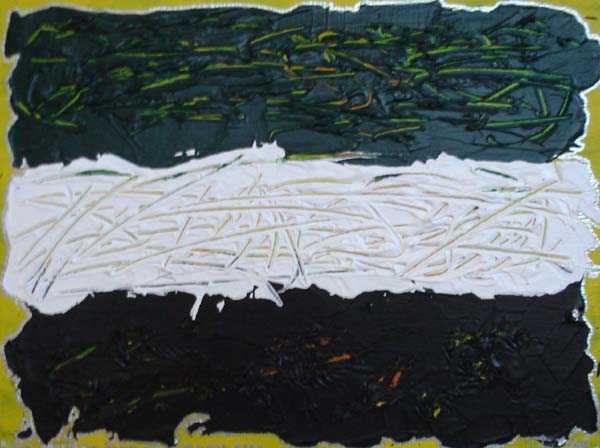
Purity Between Islam and the Dark Past, painting by Aaron Wilder
Why I am not a Southern BaptistDr. (Ms.) Michael S. Whitt
When I was a girl of ten, my mother said to me in a falsely casual voice, “Michael you’re old enough to join the church if you want. “
|

Snowy Park, art by Cheryl Townsend
Snowman-sterGreg Harvey
A band of snow that fell late last night brought a sense of innocence to the blanketed small neighborhood of Alexandria, MN. People were often victims to the wretched wintery blues, but not the community of Park View. The adept people of the cul-de-sac brought in the snow day with joy and excitement.
|

Snowball Fight, art by Edward Michael O’Durr Supranowicz
The Quiet RebelJohn Duncklee
I leaned back in my office chair at Northern Arizona University, and listened intently as two of my students, Alejandro Islas and Maria Bustamante, told me that their group had elected me their faculty advisor. The group called themselves Chicanos Por La Raza. I had heard rumblings of such a student organization, but nothing specific. I was acquainted with three professors, two that were in the Spanish department and one in anthropology, that seemed more logical to be the group’s faculty advisor than myself.
|

Dawn Bygone, art by Rose E. Grier
RaveTara Day
This place is reigned by eternal night. The daylight once tried to pierce through but the feeble rays were cast out by the mimicked windows painted over with black. There are no shadows here, just
|
The Secret Guide to Learning Courage from Ice CreamAndy Heath
It was Jesus who died for our sins. It was he who bore the cross of shame and graciously accepted the scorn of so many that had only days before praised him. It was Jesus that died a horrible death so we might all be saved and live eternally in a kingdom made of hard gold and sticky candy cane and all the wonderful things that we can enjoy in this life. But only sometimes. But Heaven – oh Heaven – that’s the place where the fun really begins.
|
Andy Heath BioAndy Heath loves writing and reading. Some of his favorite, recently read books are The Road by Cormac McCarthy, Songs for the New Depression by Kergan Edwards-Stout, and Nineteen Minutes by Jodi Picoult. Andy enjoys working at his insane day job as an office worker at a fingerprinting company, spending time with friends, running, journal writing, and watching depressing movies with his friends that can tolerate them. He is currently working on his third novel, and he frequently writes short stories. He lives in Nashville, Tennessee, a city he loves and enjoys so much now that he would probably never leave. You can contact him at heathandrewjohn at yahoo dot com.
|
A Little Off the TopBob Strother
God the Father and Sunny Jesus, what the fuck was she doing?
|
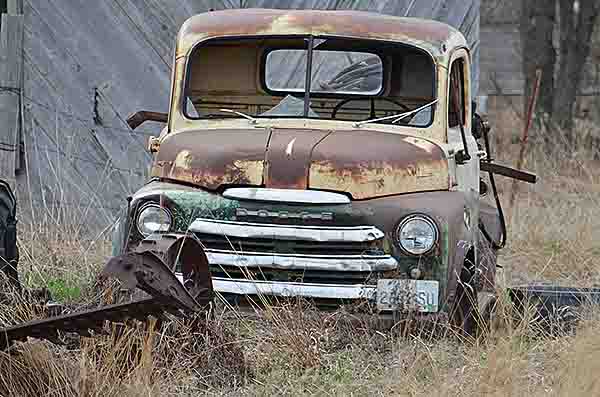
Dodge, art by David J. Thompson
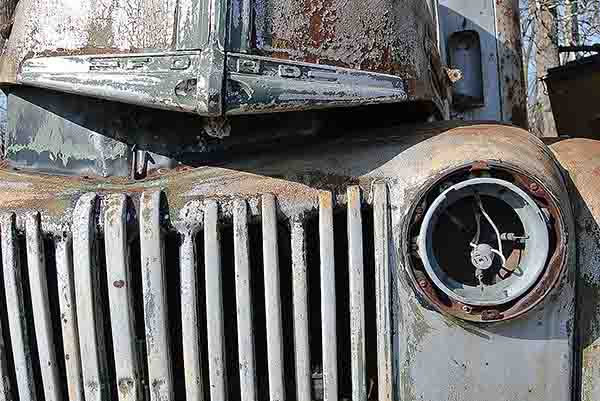
Ford, art by David J. Thompson
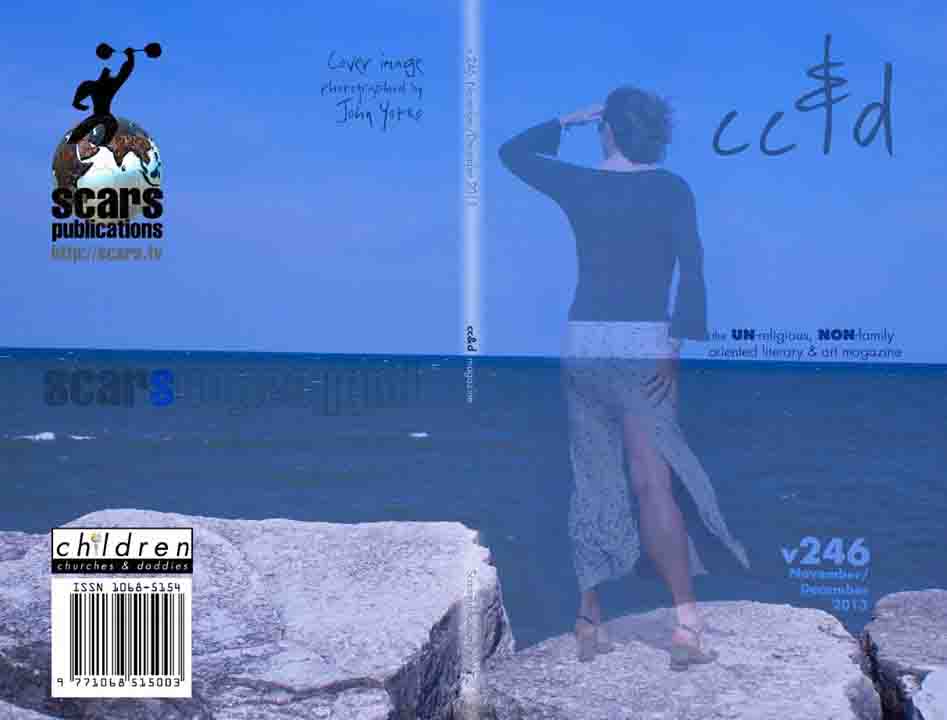

Debra Purdy Kong, writer, British Columbia, Canada I like the magazine a lot. I like the spacious lay-out and the different coloured pages and the variety of writer’s styles. Too many literary magazines read as if everyone graduated from the same course. We need to collect more voices like these and send them everywhere.
Children, Churches and Daddies. It speaks for itself. Write to Scars Publications to submit poetry, prose and artwork to Children, Churches and Daddies literary magazine, or to inquire about having your own chapbook, and maybe a few reviews like these.
what is veganism? A vegan (VEE-gun) is someone who does not consume any animal products. While vegetarians avoid flesh foods, vegans don’t consume dairy or egg products, as well as animal products in clothing and other sources. why veganism? This cruelty-free lifestyle provides many benefits, to animals, the environment and to ourselves. The meat and dairy industry abuses billions of animals. Animal agriculture takes an enormous toll on the land. Consumtion of animal products has been linked to heart disease, colon and breast cancer, osteoporosis, diabetes and a host of other conditions. so what is vegan action?
We can succeed in shifting agriculture away from factory farming, saving millions, or even billions of chickens, cows, pigs, sheep turkeys and other animals from cruelty. A vegan, cruelty-free lifestyle may be the most important step a person can take towards creatin a more just and compassionate society. Contact us for membership information, t-shirt sales or donations.
vegan action
Children, Churches and Daddies no longer distributes free contributor’s copies of issues. In order to receive issues of Children, Churches and Daddies, contact Janet Kuypers at the cc&d e-mail addres. Free electronic subscriptions are available via email. All you need to do is email ccandd@scars.tv... and ask to be added to the free cc+d electronic subscription mailing list. And you can still see issues every month at the Children, Churches and Daddies website, located at http://scars.tv
MIT Vegetarian Support Group (VSG)
functions: We also have a discussion group for all issues related to vegetarianism, which currently has about 150 members, many of whom are outside the Boston area. The group is focusing more toward outreach and evolving from what it has been in years past. We welcome new members, as well as the opportunity to inform people about the benefits of vegetarianism, to our health, the environment, animal welfare, and a variety of other issues.
Dusty Dog Reviews: These poems document a very complicated internal response to the feminine side of social existence. And as the book proceeds the poems become increasingly psychologically complex and, ultimately, fascinating and genuinely rewarding.
Dusty Dog Reviews: She opens with a poem of her own devising, which has that wintry atmosphere demonstrated in the movie version of Boris Pasternak’s Doctor Zhivago. The atmosphere of wintry white and cold, gloriously murderous cold, stark raging cold, numbing and brutalizing cold, appears almost as a character who announces to his audience, “Wisdom occurs only after a laboriously magnificent disappointment.” Alas, that our Dusty Dog for mat cannot do justice to Ms. Kuypers’ very personal layering of her poem across the page.
Fithian Press, Santa Barbara, CA Indeed, there’s a healthy balance here between wit and dark vision, romance and reality, just as there’s a good balance between words and graphics. The work shows brave self-exploration, and serves as a reminder of mortality and the fragile beauty of friendship.
Mark Blickley, writer You Have to be Published to be Appreciated. Do you want to be heard? Contact Children, Churches and Daddies about book or chapbook publishing. These reviews can be yours. Scars Publications, attention J. Kuypers. We’re only an e-mail away. Write to us.
The Center for Renewable Energy and Sustainable Technology The Solar Energy Research & Education Foundation (SEREF), a non-profit organization based in Washington, D.C., established on Earth Day 1993 the Center for Renewable Energy and Sustainable Technology (CREST) as its central project. CREST’s three principal projects are to provide: * on-site training and education workshops on the sustainable development interconnections of energy, economics and environment; * on-line distance learning/training resources on CREST’s SOLSTICE computer, available from 144 countries through email and the Internet; * on-disc training and educational resources through the use of interactive multimedia applications on CD-ROM computer discs - showcasing current achievements and future opportunities in sustainable energy development. The CREST staff also does “on the road” presentations, demonstrations, and workshops showcasing its activities and available resources. For More Information Please Contact: Deborah Anderson dja@crest.org or (202) 289-0061
Dorrance Publishing Co., Pittsburgh, PA want a review like this? contact scars about getting your own book published.
 The magazine Children Churches and Daddies is Copyright © 1993 through 2013 Scars Publications and Design. The rights of the individual pieces remain with the authors. No material may be reprinted without express permission from the author. 
Okay, nilla wafer. Listen up and listen good. How to save your life. Submit, or I’ll have to kill you.
Dorrance Publishing Co., Pittsburgh, PA: “Hope Chest in the Attic” captures the complexity of human nature and reveals startling yet profound discernments about the travesties that surge through the course of life. This collection of poetry, prose and artwork reflects sensitivity toward feminist issues concerning abuse, sexism and equality. It also probes the emotional torrent that people may experience as a reaction to the delicate topics of death, love and family. “Chain Smoking” depicts the emotional distress that afflicted a friend while he struggled to clarify his sexual ambiguity. Not only does this thought-provoking profile address the plight that homosexuals face in a homophobic society, it also characterizes the essence of friendship. “The room of the rape” is a passionate representation of the suffering rape victims experience. Vivid descriptions, rich symbolism, and candid expressions paint a shocking portrait of victory over the gripping fear that consumes the soul after a painful exploitation.
Dusty Dog Reviews (on Without You): She open with a poem of her own devising, which has that wintry atmosphere demonstrated in the movie version of Boris Pasternak’s Doctor Zhivago. The atmosphere of wintry white and cold, gloriously murderous cold, stark raging cold, numbing and brutalizing cold, appears almost as a character who announces to his audience, “Wisdom occurs only after a laboriously magnificent disappointment.” Alas, that our Dusty Dog for mat cannot do justice to Ms. Kuypers’ very personal layering of her poem across the page.
|